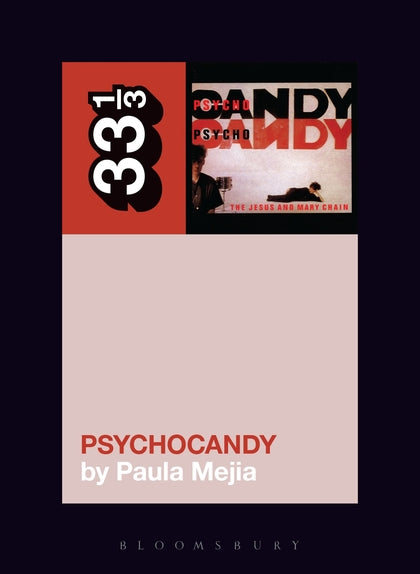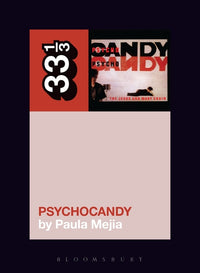
Paula Mejia
●
Bloomsbury Academic
33 1/3 - The Jesus & Mary Chain - Psychocandy
Pages
136Format
PaperbackRelease date
October 2016Publisher
Bloomsbury AcademicWeight
4.7 ozSize
4.67 x 0.37 x 6.54 "
The Jesus and Mary Chain's swooning debut Psychocandy seared through the underground and through the pop charts, shifting the role of noise within pop music forever. Post-punk and pro-confusion, Psychocandy became the sound of a generation poised on the brink of revolution, establishing Creation Records as a tastemaking entity in the process. The Scottish band's notorious live performances were both punishingly loud and riot-spurring, inevitably acting as socio-political commentary on tensions emergent in mid-1980s Britain. Through caustic clangs and feedback channeling the rage of the working-class who'd had enough, Psychocandy gestures toward the perverse pleasure in having your eardrums exploded and loudness as a politics within itself.
Yet Psychocandy's blackened candy heart center – calling out to phantoms Candy and Honey with an unsettling charm – makes it a pop album to the core, and not unlike the sugarcoated sounds the Ronettes became famous for in the 1960s. The Jesus and Mary Chain expertly carved out a place where depravity and sweetness entwined, emerging from the isolating underground of suburban Scotland grasping the distinct sound of a generation, apathetic and uncertain. The irresistible Psychocandy emerged as a clairvoyant account of struggle and sweetness that still causes us to grapple with pop music's relation to ourselves.
Yet Psychocandy's blackened candy heart center – calling out to phantoms Candy and Honey with an unsettling charm – makes it a pop album to the core, and not unlike the sugarcoated sounds the Ronettes became famous for in the 1960s. The Jesus and Mary Chain expertly carved out a place where depravity and sweetness entwined, emerging from the isolating underground of suburban Scotland grasping the distinct sound of a generation, apathetic and uncertain. The irresistible Psychocandy emerged as a clairvoyant account of struggle and sweetness that still causes us to grapple with pop music's relation to ourselves.






